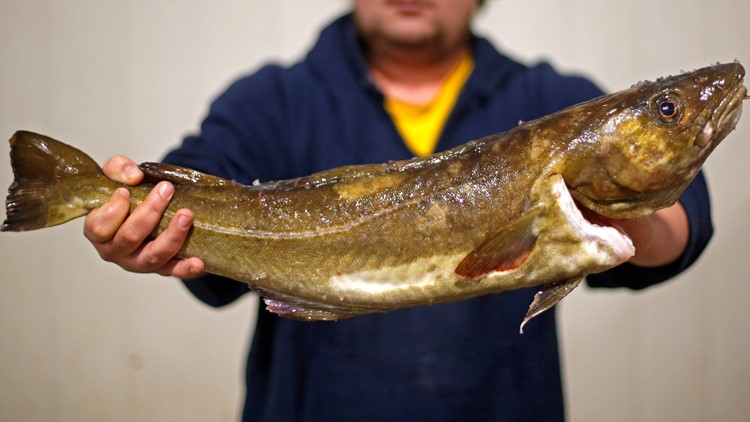PORTLAND, Maine — One of the oldest fishing industries in the U.S. sank to a new low in catch last year, signaling that efforts to rebuild the fishery still have a long way to go.
New England fishermen have caught Atlantic cod for centuries, but the catch has dwindled over the last decade due to overfishing, restrictive fishing quotas, and environmental changes. The vast majority of the fish come to the docks in Massachusetts, New Hampshire, and Maine.
Maine fishermen brought fewer cod to the docks last year than any other in recorded history, state regulators said earlier this month. The state's catch, which was more than 20 million pounds in the early 1990s, was less than 50,000 pounds last year, state records show.
Cod are the fish of choice for fish and chips in the U.S., but the industry's collapse has left the country dependent on imports from countries such as Iceland. Russia is another major exporter, but the U.S. banned imports of Russian seafood due to the invasion of Ukraine.
U.S. fishing quotas for Atlantic cod are so low that most fishermen avoid them altogether, said Terry Alexander, a fisherman based out of Harpswell, Maine. Those same fishermen target other species of bottom-dwelling whitefish, such as haddock and flounder.
“We can't catch cod. The quota is so low that nobody could target cod. Nobody,” Alexander said. “That's how we're going to handle it.”
The nationwide catch of Atlantic cod reached a low point in 2020 at about 1.6 million pounds. Nationwide figures for 2021 have not yet been assembled by the National Oceanic and Atmospheric Administration, which regulates U.S. fisheries. The nationwide Atlantic cod catch was well over 100 million pounds per year in the early 1980s.
The collapse of the cod fishing industry is a stark contrast to most of the rest of Maine's fishing industry, which has grown in value in recent years. Much of the growth has come from the soaring price of lobster, the state's signature export.



